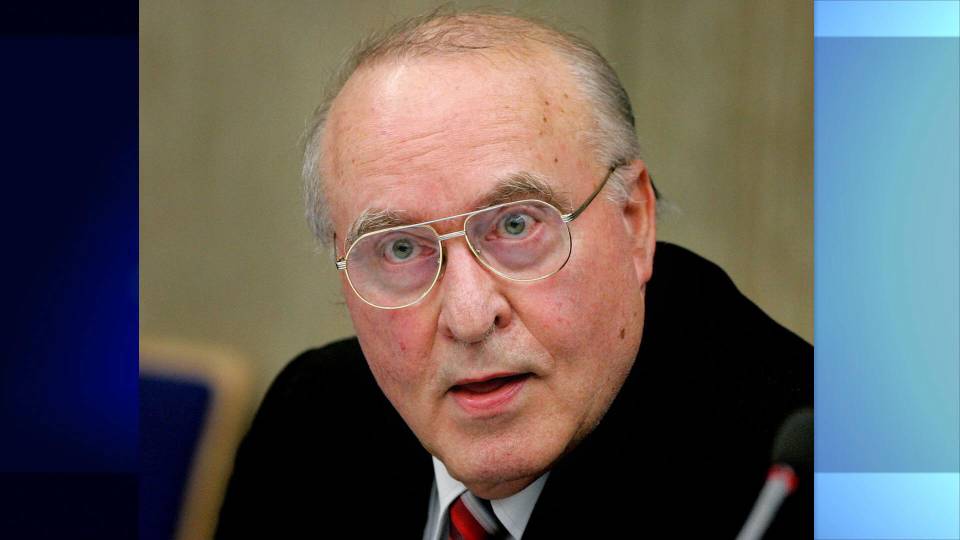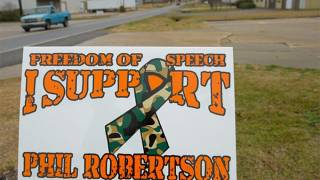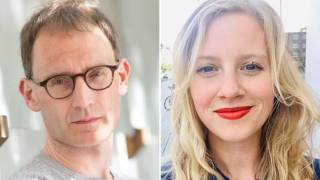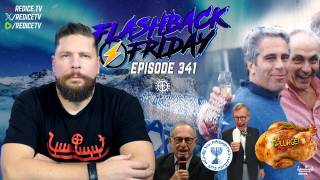Ernst Zündel: A Lover, not a Hater
Ernst Zündel died of heart failure on August 5 at his ancestral home in the Black Forest region of southwestern Germany, near Pforzheim, one day before the anniversary of the atomic holocaust in the city of Hiroshima, Japan. He was 78. He passed away seven years and five months after having served seven years in confinement in Canadian and German prisons for thought crimes committed as a publisher, broadcaster and protestor. To make the inquisition against this German human rights activist palatable to the public, his “crime” is monotonously described as “inciting hatred for years with anti-Semitic activities.”
In America the yahoos are stirred to outrage by the spectre of Islamic “Sharia law” coming to Mayberry, while they are oblivious to the Talmudic law and psychology which suffuses the U.S.A. Talmudic halacha is a two-tiered legal system: one law for the Holy People and another for everyone else. Thus it is written in Sanhedrin 57a, “Regarding bloodshed, the following distinction applies: if a non-Jew killed another non-Jew, or a non-Jew killed a Jew, the killer is liable for execution; if a Jew killed a non-Jew he is exempt from punishment.”
By the same logic, if a Judaic incites hatred of Germans it is not a crime, it is a well-deserved act of retribution. Zündel spent his life fighting this corrupt double-standard. He did so not for philosophical or ideological reasons. Rather, he believed that relentless anti-German hate propaganda was a kind of psychological warfare and mental genocide which internally colonized the souls of the German people, radically reducing their self-worth and causing them to engage in self-destructive and suicidal behavior.
His lifelong campaign to counter anti-German hatred and Talmudic bigotry has been transformed through the alchemy of media falsification into itself an act of hate, and it is at this omega point that Ernst’s persona has been frozen by the Establishment. “He was a hater!” That’s all we’re supposed to know, or need to know, about his life and work.
Having emigrated to Canada as a young man of 19, he became a sought-after graphic artist, working for national magazines. That he was a public relations genius is indisputable. In the 1960s he began placing advertisements in comic books, urging freedom for imprisoned Nazi leader Rudolf Hess, and for a volume about “Nazi UFOs,” the latter a publicity stunt intended to build the revisionist history mailing list he was gradually compiling. By the late 1970s, when the Newspeak distortion of the word “holocaust” began to be appropriated by the Zionist lobby and applied exclusively to the sufferings (both real and imagined) of Judaic people in World War II, Ernst began his counter-offensive, making contact with the academics and historians in the burgeoning revisionist history movement that was questioning the “Holocaust” liturgy.
By 1983 his mass mailings had become so extensive that the powerful Zionist lobby in Canada persuaded the government to ban Zündel from using the mail. He was forced to publish from a Buffalo, New York-area post office, hundreds of miles from his base in Toronto. For publishing doubts about the existence of execution gassing facilities in concentration camps, he was indicted for distributing “false news.” He went to court in Toronto in January, 1985, in what would become known as “The Great Holocaust Trial,” having assembled a stellar legal and history research team led by Doug Christie, who was at that time an obscure, upstart attorney from British Columbia, and Dr. Robert Faurisson, a French academic with a vast command of World War II revisionist history.
Zündel’s own World War II-generation of Germans rallied around him. The large Victorian “Zündelhaus” in Toronto was filled with German people acting as defense witnesses in the trial and assistants in various capacities. There were also non-Germans across the spectrum, including Judaics such as the brilliant and eccentric Ditlieb Felderer, the inaugural forensic investigator and photographer of the Auschwitz-Birkenau slave labor camp.
Ernst was not a provincial German. He was cosmopolitan and sophisticated, with broad tastes and sympathies. He forged alliances with everyone from Judaics disgruntled with the Israeli state and Judaism, to the former Attorney General of Massachusetts who would call Ernst in the middle of the night during the 1985 trial and offer him legal advice.
In the course of the 1985 trial the Crown prosecution called many “unimpeachable Holocaust survivor eyewitnesses” to the stand, in order to send Zündel to prison. Under cross-examination, each one was reduced to a quivering pile of fantastic or contradictory testimony that was essentially worthless. Rudolf Vrba, one of the first “major witnesses” to the alleged homicidal gas chambers, who was regarded as a pillar of “Holocaust” survivor testimony, was made to concede under oath that his book, I Cannot Forgive, could not stand up in court and was only an “artistic picture” of Auschwitz. Because of the embarrassing revelations elicited from these witnesses, no “Holocaust survivors” were called to testify in defense of Deborah Lipstadt in the course of David Irving’s libel suit against her (a fact noted by the actor playing the part of her barrister Anthony Julius, in the 2016 Hollywood movie, “Denial”).
The most eminent “Holocaust” historian of the 1980s was Dr. Raul Hilberg. During the Great Holocaust Trial he was compelled to admit on the witness stand that there was no scientific evidence of homicidal gassings. “I’m at a loss” were the shocking words this “leading Holocaust scholar” uttered when asked by Christie to cite such evidence.
Ernst’s initial conviction on the ridiculous 1985 false news charge was overturned on appeal to the Ontario Court, citing presiding Judge Hugh Locke’s overwhelming bias toward the defendant.
Zündel was tried yet again in 1988; that trial is noteworthy for having produced engineer Fred Leuchter’s unprecedented Leutcher Report on the impossibility of mass chemical poison gassings in the facilities he personally studied and sampled in Auschwitz-Birkenau. Ernst published many tens of thousands of copies of Leutcher Report for circulation world-wide.
Read the rest of Michael Hoffman's essay here.






















